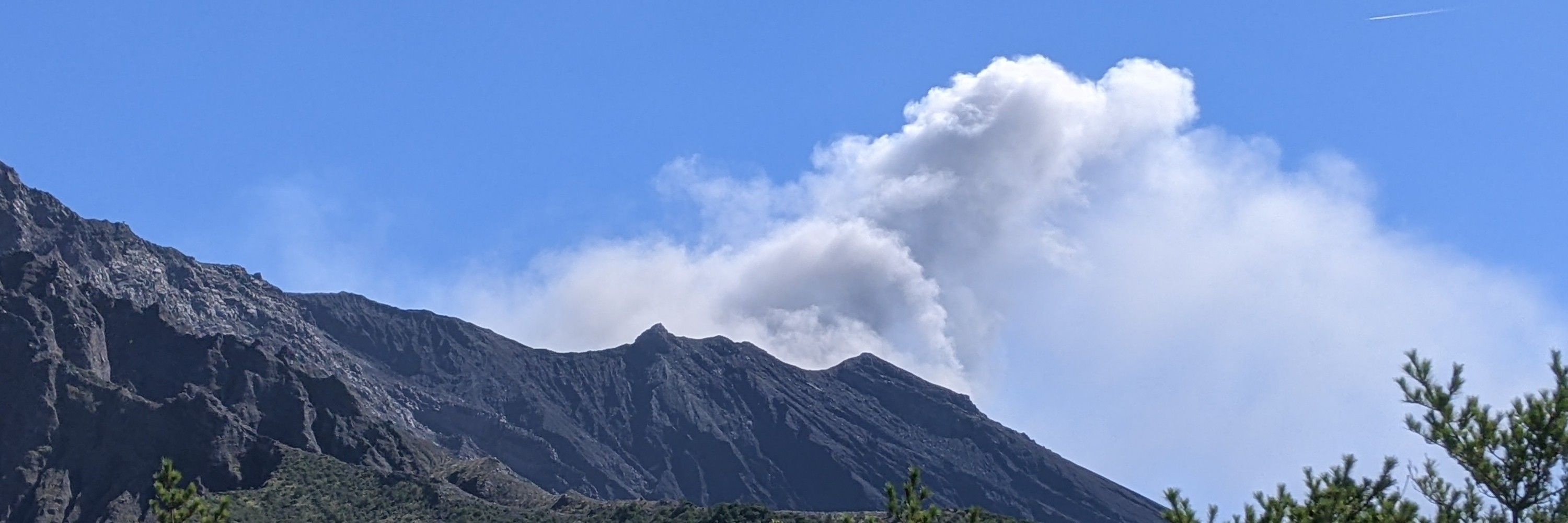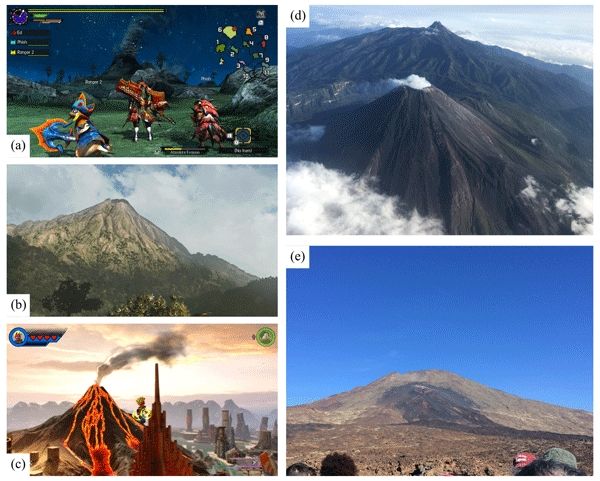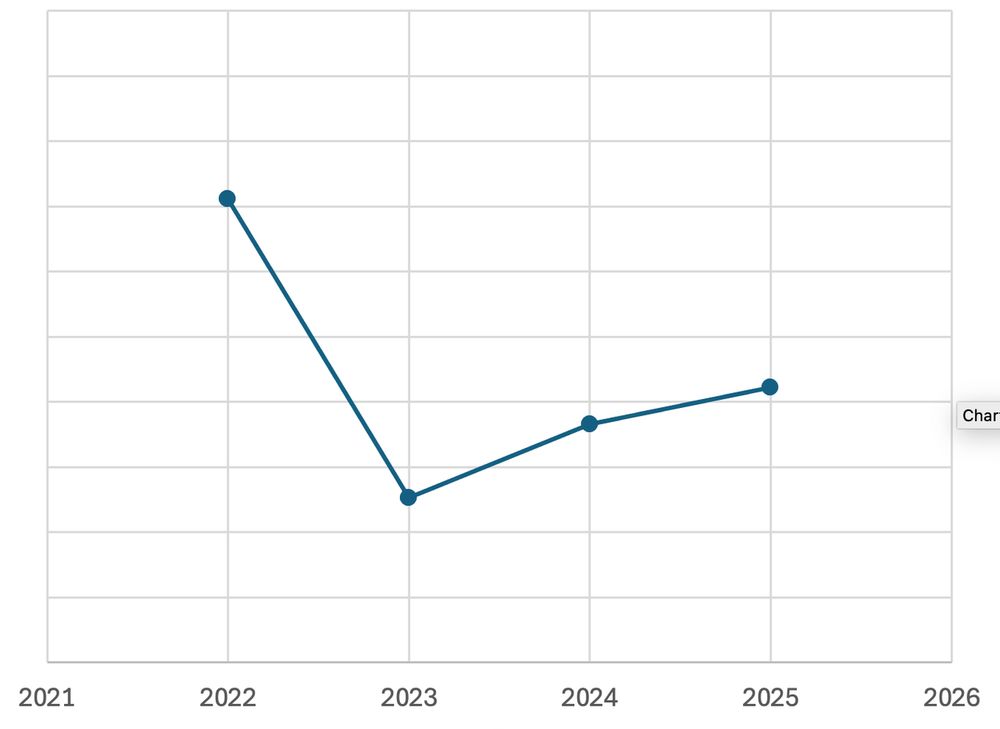
Jamie Farquharson
@farquharson.bsky.social
Volcanologist • Archipelagan • Reads a lot • Tries hard • Professor @ Niigata University
Do you have a favourite course?
October 15, 2025 at 12:13 PM
Do you have a favourite course?
Check out more insights in the paper ☛ doi.org/10.1038/s432...
Feel free to get in touch with any questions, or if you are interested in communicating volcanology across languages, or if you want to work with a mountain of social media data…
~fin~
Feel free to get in touch with any questions, or if you are interested in communicating volcanology across languages, or if you want to work with a mountain of social media data…
~fin~

Multilingual social media analysis reveals global patterns and language imbalances in volcanic eruption coverage - Communications Earth & Environment
Social media discourse reflects public engagement with volcanic hazard, but English is the dominant language even in non-English speaking regions, according to a four-year-long longitudinal study across 18 languages on /Twitter.
doi.org
September 30, 2025 at 2:16 PM
Check out more insights in the paper ☛ doi.org/10.1038/s432...
Feel free to get in touch with any questions, or if you are interested in communicating volcanology across languages, or if you want to work with a mountain of social media data…
~fin~
Feel free to get in touch with any questions, or if you are interested in communicating volcanology across languages, or if you want to work with a mountain of social media data…
~fin~
Of course, these results are from Twitter data: not universally popular or even globally accessible. These results could look very different using data from other social media platforms like VK, Telegram, Bluesky, or QQ. The methods and analyses should be transferrable though.
September 30, 2025 at 2:16 PM
Of course, these results are from Twitter data: not universally popular or even globally accessible. These results could look very different using data from other social media platforms like VK, Telegram, Bluesky, or QQ. The methods and analyses should be transferrable though.
This undoubtedly influences our perceptions of the distribution and relative importance of volcanic hazard around the world.
September 30, 2025 at 2:16 PM
This undoubtedly influences our perceptions of the distribution and relative importance of volcanic hazard around the world.
English dominates on Twitter. In the dataset used here, the max number of posts per day containing “volcanic eruption” was over 61,000. Compare that with say, French (max. ~3700 posts per day) or Amharic (max. 2 posts per day)...
September 30, 2025 at 2:16 PM
English dominates on Twitter. In the dataset used here, the max number of posts per day containing “volcanic eruption” was over 61,000. Compare that with say, French (max. ~3700 posts per day) or Amharic (max. 2 posts per day)...
We can use various stats and data visualisation approaches to compare & quantify interlingual dynamics: a picture emerges that some languages are dominant in shaping the online discourse about volcanic stuff (“leaders”), others are “followers,” and yet others are isolated online ecosystems.
September 30, 2025 at 2:16 PM
We can use various stats and data visualisation approaches to compare & quantify interlingual dynamics: a picture emerges that some languages are dominant in shaping the online discourse about volcanic stuff (“leaders”), others are “followers,” and yet others are isolated online ecosystems.
However, when an eruption becomes “newsworthy” they can significantly modify discourse about volcanic hazards in general. For example, there is a step-change in the background level of “erupción volcánica” posts that persists long after the cessation of the Tajogaite eruption.
September 30, 2025 at 2:16 PM
However, when an eruption becomes “newsworthy” they can significantly modify discourse about volcanic hazards in general. For example, there is a step-change in the background level of “erupción volcánica” posts that persists long after the cessation of the Tajogaite eruption.
Not so for all eruptions: deadly eruptions like the Semeru 2021 catastrophe were underrepresented relative to less-damaging eruptions like Fagradallfjall, and some eruptions (e.g. Sakurajima Aug 2022 or Sheveluch Apr 2023) cause barely a ripple in the Twittersphere.
September 30, 2025 at 2:16 PM
Not so for all eruptions: deadly eruptions like the Semeru 2021 catastrophe were underrepresented relative to less-damaging eruptions like Fagradallfjall, and some eruptions (e.g. Sakurajima Aug 2022 or Sheveluch Apr 2023) cause barely a ripple in the Twittersphere.
Perhaps unsurprisingly, the Hunga Tonga-Hunga Ha`apai eruption stands out as the dominant event across almost all languages. People were talking about it all over the planet!

September 30, 2025 at 2:16 PM
Perhaps unsurprisingly, the Hunga Tonga-Hunga Ha`apai eruption stands out as the dominant event across almost all languages. People were talking about it all over the planet!
Using a short-term/long-term averaging approach, we can define an “anomaly score” α. Basically, spikes in α signify that Twitter activity is heightened above its background level. These event spikes tend to correspond to real-world events, which is cool.

September 30, 2025 at 2:16 PM
Using a short-term/long-term averaging approach, we can define an “anomaly score” α. Basically, spikes in α signify that Twitter activity is heightened above its background level. These event spikes tend to correspond to real-world events, which is cool.
It was a lot of data! More than 12 Million Tweet objects, each of which contains a host of information (identifier, text, URLs, timestamp, geolocation etc. etc. etc.). Sidenote: everyone puts a frightening amount of personal information on the internet.
September 30, 2025 at 2:16 PM
It was a lot of data! More than 12 Million Tweet objects, each of which contains a host of information (identifier, text, URLs, timestamp, geolocation etc. etc. etc.). Sidenote: everyone puts a frightening amount of personal information on the internet.
I set up a Python script to crawl all Twitter posts in a 24-hr period w/ predefined strings in 20 languages, including “volcanic eruption” and translated equivalents, e.g. “eruption volcanique”, “火山噴火”, etc. I downloaded all those posts every day for ~4 years, until Twitter went down the shitter.
September 30, 2025 at 2:16 PM
I set up a Python script to crawl all Twitter posts in a 24-hr period w/ predefined strings in 20 languages, including “volcanic eruption” and translated equivalents, e.g. “eruption volcanique”, “火山噴火”, etc. I downloaded all those posts every day for ~4 years, until Twitter went down the shitter.
1. how does social media reflect real-world volcanic activity?
2. how do “notable” eruptions shape online discourse?
3. how do language and geography influence information dissemination?
2. how do “notable” eruptions shape online discourse?
3. how do language and geography influence information dissemination?
September 30, 2025 at 2:16 PM
1. how does social media reflect real-world volcanic activity?
2. how do “notable” eruptions shape online discourse?
3. how do language and geography influence information dissemination?
2. how do “notable” eruptions shape online discourse?
3. how do language and geography influence information dissemination?
My focus is on volcanology. Some awesome work has been done using social media data to analyse specific volcanic eruptions, incl. @jameshickey77.bsky.social and @eilyinskaya.bsky.social, or to gain insights from specific orgs (e.g. @bgs.ac.uk). I was very interested in three intersecting questions:
September 30, 2025 at 2:16 PM
My focus is on volcanology. Some awesome work has been done using social media data to analyse specific volcanic eruptions, incl. @jameshickey77.bsky.social and @eilyinskaya.bsky.social, or to gain insights from specific orgs (e.g. @bgs.ac.uk). I was very interested in three intersecting questions:
I love this poem. Starts at a trot and finishes at a gallop 🏞️
September 6, 2025 at 2:38 AM
I love this poem. Starts at a trot and finishes at a gallop 🏞️
share.google/pvUKkh7o7nV3...
doi.org/10.5194/gc-4...
@thevolcanoguy.bsky.social @grumpyvolcano.bsky.social
doi.org/10.5194/gc-4...
@thevolcanoguy.bsky.social @grumpyvolcano.bsky.social

Volcanoes in video games: the portrayal of volcanoes in commercial off-the-shelf (COTS) video games and their learning potential
Abstract. Volcanoes are a very common staple in mainstream video games. Particularly
within the action–adventure genres, entire missions (e.g. Monster Hunter: Generation Ultimate, 2018) or even full
s...
share.google
August 31, 2025 at 7:09 AM
The symposium is free to attend and abstracts are free to submit, although there will be some social events and field excursions for which expenses will be collected locally in cash. Abstracts and registrations are still open!
Check out the website or contact me for more info.
www.thevolcano.world
Check out the website or contact me for more info.
www.thevolcano.world
Conference 2025 - Home
www.thevolcano.world
July 29, 2025 at 7:06 AM
The symposium is free to attend and abstracts are free to submit, although there will be some social events and field excursions for which expenses will be collected locally in cash. Abstracts and registrations are still open!
Check out the website or contact me for more info.
www.thevolcano.world
Check out the website or contact me for more info.
www.thevolcano.world
We are thrilled to announce that the meeting will feature a keynote from Patricia Mothes from Instituto Geofísico of the Escuela Politécnica Nacional (IG-EPN @igepnecuador.bsky.social ), who has a wealth of experience on each of the symposium themes, and is sure to provide some terrific insights.
July 29, 2025 at 7:06 AM
We are thrilled to announce that the meeting will feature a keynote from Patricia Mothes from Instituto Geofísico of the Escuela Politécnica Nacional (IG-EPN @igepnecuador.bsky.social ), who has a wealth of experience on each of the symposium themes, and is sure to provide some terrific insights.
The “Knowledge-sharing” session will focus on how volcano research is transferred not only between researchers, but also to and from monitoring agencies and the general public. It will include a panel discussion feat. scientists from Earth Observatory Singapore, PHIVOLCS, and Earth Sciences NZ.
July 29, 2025 at 7:06 AM
The “Knowledge-sharing” session will focus on how volcano research is transferred not only between researchers, but also to and from monitoring agencies and the general public. It will include a panel discussion feat. scientists from Earth Observatory Singapore, PHIVOLCS, and Earth Sciences NZ.
The "Exposure, preparedness, and risk reduction" day will feature a workshop led by @laramani14.bsky.social
(University of Cambridge). “The next generation of volcano monitoring" will include an opportunity for showcasing monitoring software, tools, and technology.
(University of Cambridge). “The next generation of volcano monitoring" will include an opportunity for showcasing monitoring software, tools, and technology.
July 29, 2025 at 7:06 AM
The "Exposure, preparedness, and risk reduction" day will feature a workshop led by @laramani14.bsky.social
(University of Cambridge). “The next generation of volcano monitoring" will include an opportunity for showcasing monitoring software, tools, and technology.
(University of Cambridge). “The next generation of volcano monitoring" will include an opportunity for showcasing monitoring software, tools, and technology.
Themes:
1. "Exposure, preparedness, and risk reduction” (co-organised by @gvra.bsky.social );
2. “The next generation of volcano monitoring" (co-organised by Volcanotech www.volcanotech.co.uk);
3. “Knowledge-sharing” (co-organised by the Asian Consortium of Volcanology kazan.bosai.go.jp/en/acv/).
1. "Exposure, preparedness, and risk reduction” (co-organised by @gvra.bsky.social );
2. “The next generation of volcano monitoring" (co-organised by Volcanotech www.volcanotech.co.uk);
3. “Knowledge-sharing” (co-organised by the Asian Consortium of Volcanology kazan.bosai.go.jp/en/acv/).

VolcanoTech
www.volcanotech.co.uk
July 29, 2025 at 7:06 AM
Themes:
1. "Exposure, preparedness, and risk reduction” (co-organised by @gvra.bsky.social );
2. “The next generation of volcano monitoring" (co-organised by Volcanotech www.volcanotech.co.uk);
3. “Knowledge-sharing” (co-organised by the Asian Consortium of Volcanology kazan.bosai.go.jp/en/acv/).
1. "Exposure, preparedness, and risk reduction” (co-organised by @gvra.bsky.social );
2. “The next generation of volcano monitoring" (co-organised by Volcanotech www.volcanotech.co.uk);
3. “Knowledge-sharing” (co-organised by the Asian Consortium of Volcanology kazan.bosai.go.jp/en/acv/).


